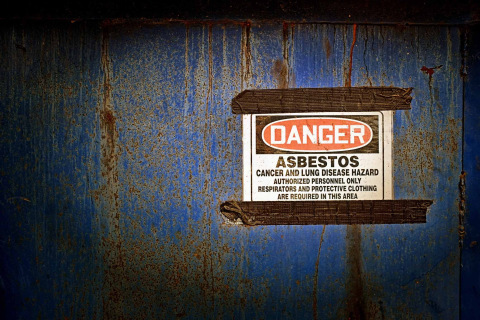
The Mesothelioma Center News
Recent News Posts
-
news
 Asbestos Exposure & BansThe Environmental Protection Agency, now under the Trump administration, is reconsidering the former administration’s decision to ban the ongoing use of chrysotile asbestos. EPA…
Asbestos Exposure & BansThe Environmental Protection Agency, now under the Trump administration, is reconsidering the former administration’s decision to ban the ongoing use of chrysotile asbestos. EPA… -
news
 Asbestos Exposure & Bans
Asbestos Exposure & BansExperts Warn: Talc Could Pose a Serious Health Risk
Leading scientists and doctors recently met with officials from the U.S. Food and Drug Administration, participating in the FDA Expert Panel on Talc to… -
news
 Legislation & Litigation
Legislation & LitigationCourt Ruling Marks Major Shift in Mesothelioma Lawsuits
The South Carolina Supreme Court has taken a major step in protecting the rights of people with mesothelioma as a result of legacy asbestos. -
news
 Legislation & Litigation
Legislation & LitigationClinic That Helped Libby Mesothelioma Survivors Shuttered
For 25 years, Libby, Montana’s Center for Asbestos Related Disease clinic, also known as CARD, has helped thousands of people with mesothelioma and other… -
news
 Legislation & Litigation
Legislation & LitigationJohnson & Johnson Targets Mesothelioma Expert Again
Johnson & Johnson is trying a different strategy to discredit a reputable mesothelioma expert as asbestos claims against its talc products continue to climb. -
news
 Legislation & Litigation
Legislation & LitigationJudge Rejects J&J’s $10 Billion Talc Settlement
United States Bankruptcy Judge Christopher M. López of the Southern District of Texas has denied Johnson & Johnson’s $10 billion baby powder settlement proposal. -
news
 Asbestos Exposure & Bans
Asbestos Exposure & BansAsbestos Contamination Expected to Delay Wildfire Cleanup
Asbestos testing with certified asbestos consultants and other experts has been ongoing since 2 wildfires – the Eaton and Palisades fires – blazed across… -
news
 Environmental
EnvironmentalFrom Toxic Pile to Carbon Sponge: Asbestos Mine Gets a Green Makeover
An abandoned asbestos mine in Baie Verte, in the Canadian province of Newfoundland, is slated for a significant environmental remediation project. BAIE Minerals, a… -
news
 Legislation & Litigation
Legislation & LitigationNew Laws May Threaten Mesothelioma Payouts
Georgia, Missouri and Arkansas have now all passed bills limiting the damages people can receive and reducing the time people have to file personal… -
news
 Asbestos Exposure & Bans
Asbestos Exposure & BansAsbestos Violations Result in Incarceration and Fines
Asbestos violations are costing some companies thousands of dollars. In one case, the court sentenced a man to jail time for his role in…

